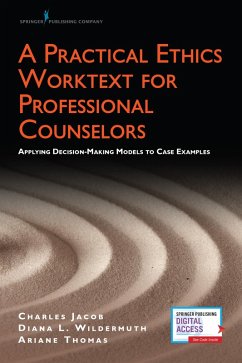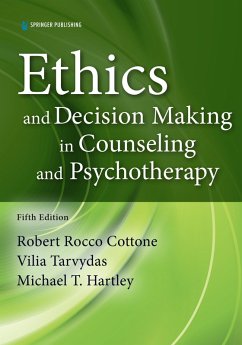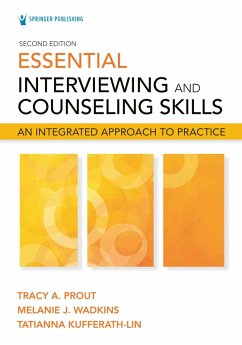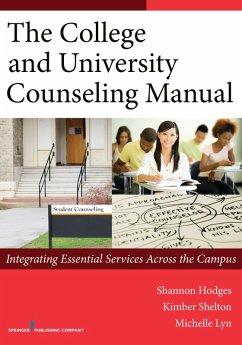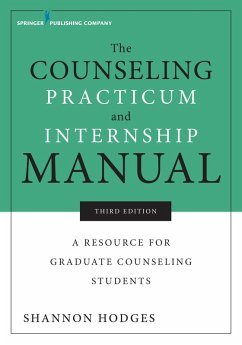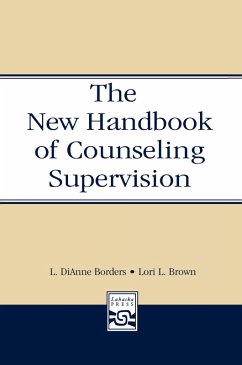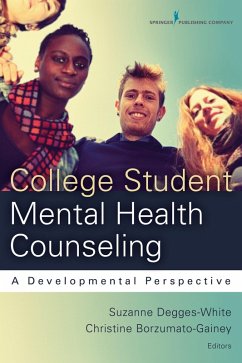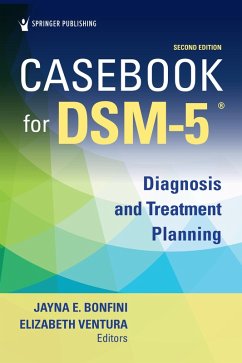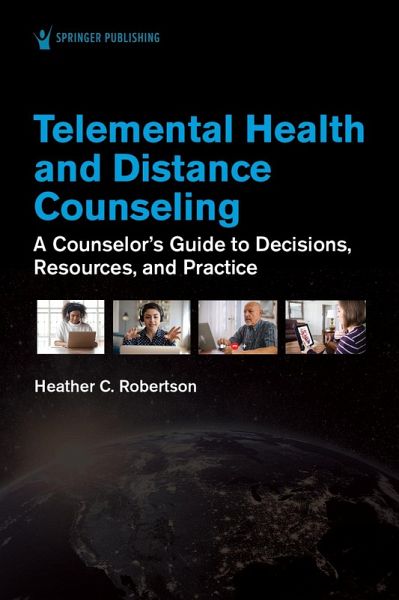
Telemental Health and Distance Counseling (eBook, ePUB)
A Counselor's Guide to Decisions, Resources, and Practice
Versandkostenfrei!
Sofort per Download lieferbar
43,95 €
inkl. MwSt.
Weitere Ausgaben:

PAYBACK Punkte
22 °P sammeln!
This timely text provides foundational knowledge and skills pertaining to ethical and evidence-based practice for mental health providers engaging in or considering using distance modalities to treat clients. Targeting day-to-day application, the book explains the core functions of Telemental Health counseling (TMH) and its use across a broad spectrum of mental health modalities and settings. Using the framework of the ACA divisions, ASCA, and CACREP core areas to examine TMH, the text provides instructions to develop skills that readers can apply directly to their own counseling interactions....
This timely text provides foundational knowledge and skills pertaining to ethical and evidence-based practice for mental health providers engaging in or considering using distance modalities to treat clients. Targeting day-to-day application, the book explains the core functions of Telemental Health counseling (TMH) and its use across a broad spectrum of mental health modalities and settings. Using the framework of the ACA divisions, ASCA, and CACREP core areas to examine TMH, the text provides instructions to develop skills that readers can apply directly to their own counseling interactions. Providing a wealth of information based on empirical and impartial views, the book helps readers examine the benefits and risks of distance counseling in various settings. It encompasses the history of TMH, ethical codes, legal guidelines, and recent research.
Case studies and opportunities for self-reflection enable readers to envision distance counseling in real-world contexts, ask critical questions, and form conclusions about its utility in their practice. Of particular value is the "Voices from the Field" feature, where practitioners from different settings describe using distance counseling. The "Challenges and Opportunities" features discuss the pros and cons of telemental health practice. The book is written through the lens of professional counseling which makes it an ideal companion to Counselor Education program courses in Counseling Skills, Pre-Practicum, Advanced Theory, or elective coursework pertaining to distance counseling and telemental health.
Key Features:
Case studies and opportunities for self-reflection enable readers to envision distance counseling in real-world contexts, ask critical questions, and form conclusions about its utility in their practice. Of particular value is the "Voices from the Field" feature, where practitioners from different settings describe using distance counseling. The "Challenges and Opportunities" features discuss the pros and cons of telemental health practice. The book is written through the lens of professional counseling which makes it an ideal companion to Counselor Education program courses in Counseling Skills, Pre-Practicum, Advanced Theory, or elective coursework pertaining to distance counseling and telemental health.
Key Features:
- Includes critical content pertaining to the COVID-19 crisis
- Expands the view of distance counseling to include such varied professionals as mental health, school, family, couple, rehabilitation, addiction specialists, etc.
- Presents abundant case studies to provide context and practical application
- Addresses the positive and negative aspects of practicing distance counseling
- Includes ethical issues in each chapter pertaining to designated core areas or specialty
- Presents "Questions of Practice" to foster critical thinking regarding the use of TMH in specific roles or functions,
- Offers "Voices from the Field" with real-world examples focusing on practicing TMH within the designated core areas or specialties
- Emphasizes ethical, practical, and logistical TMH practice in all chapters
- Written through the lens of a professional counselor who is also a board-certified telemental health provider
Dieser Download kann aus rechtlichen Gründen nur mit Rechnungsadresse in A, D ausgeliefert werden.




